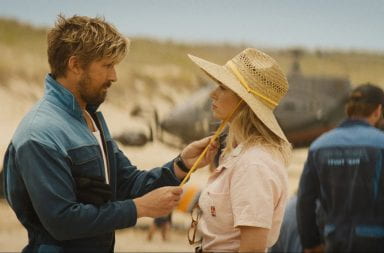Bill Ryder-Jones’ hypothetical score to the 1979 Italo Calvino novel “If on a Winter’s Night a Traveler,” sounds like one would expect a score to sound. But the personality and emotion of a traditional film score is observed holistically in “If …”
Even though the album has the character of a soundtrack, it exhibits a great sense of musicianship, as Ryder-Jones’ pieces are backed with the orchestral tone of the Royal Liverpool Philharmonic Orchestra. The major instrumentation on “If …” is unsurprisingly, yet fittingly, a string section.
With the Liverpool Philharmonic, Ryder-Jones succeeds in creating a record encapsulating emotional dynamism. The album’s first piece and title track is eerie and eye-opening; it truly has the sound of introduction. “If …” is also spirited, jumping all over the place in intensity. In doing so, it serves as a sort of motif for the album, setting up the basis for the rest of it.
The album’s mystery does not solely linger in its opener. It swings heavily into “The Reader (Malbork)”, maintaining a hint of mystery in “Leaning (Star of Sweden).”
“If …,” although it is truly a slow album to its core, becomes strikingly contemplative in its final moments after being curious in nature.
“The Flowers #3 (Lotus)” winds the story of the album down to the stance-taking “Give Me a Name.” The album’s closer, “Some Absolute End (The End)” has notes of lingering and anxiety, but eventually gives up to a conclusion.
The album’s defining moment comes with “Enlace,” which is reflective of Ryder-Jones at his most pristine and identifiable in his composing. The song’s beginning is shrouded in mystery, only to be gunned by a truly beautiful, attaching melody. Perhaps the first half or so of the song will seem similar to the rest of the album, but out of nowhere comes a nostalgic, operatic guitar breakdown at “Enlace”‘s end. Yes, it’s silly to a degree, but illustrates Ryder-Jones’ ability to not take himself too seriously and just play what sounds good.
Ryder-Jones’ undertaking of “If …” is an interesting one, considering he had to construe his own emotion out of a novel that did not have a screenplay. Surely there was something pulled out of the novel that inspired “If …,” as there is with any good novel.
However, “If …” appears successful as a score, but save for a few distinct moments, it is really only that.
Grade: B


